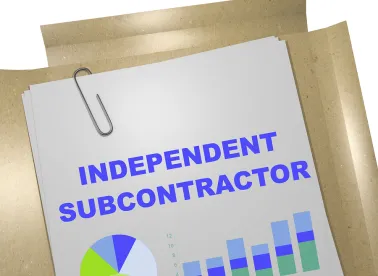We have written frequently here about AB5, California’s controversial law that creates an “ABC” test that must be satisfied in order for a worker to be treated as an independent contractor. As we explained here, AB5 codified and expanded the “ABC” test adopted by the California Supreme Court in Dynamex Operations West, Inc. v. Superior Court for determining whether workers in California should be classified as employees or as independent contractors.
While the statute was unambiguously aimed at ride share and food delivery companies that treat drivers as independent contractors, it was broadly written and was passed with little discussion. Confusingly, it contained a mishmash of last-minute exemptions from the “ABC” test that, from a distance, seemed to be based on little more than which industry groups were able to get legislators’ ears in the hours before the statute was passed.
The original exemptions to AB5 extended to doctors, dentists, insurance agents, lawyers, accounts, real estate agents, and hairstylists, among others.
Now, eight months after AB5 went into effect, more industries and occupations have been exempted from AB5.
On September 4, 2020, Governor Gavin Newsom signed AB 2257, which immediately exempts the following professions from the ambit of AB5:
-
Fine artists
-
Freelance writers
-
Still photographers
-
Photojournalists
-
Freelance editors
-
Newspaper cartoonists
-
Translators
-
Copy Editors
-
Producers
-
Cartographers
-
Musicians with single-engagement live performances
-
Musicians involved in sound recordings or musical compositions
-
Insurance inspectors
-
Real estate appraisers
-
Manufactured housing salespersons
-
Youth sports coaches
-
Landscape architects
-
Professional foresters
These new exemptions may be just the start of amendments to AB5 that will carve out other industries and occupations.
And while it seems highly unlikely that AB5 will be amended to exempt ride share and food delivery companies from the “ABC” test, California voters will decide that themselves in November when they vote on Proposition 22, which would exempt those companies.



 />i
/>i

